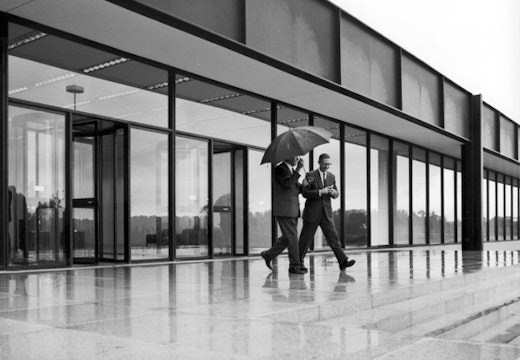Canary Wharf’s struggles symbolised by financial deal to redesign offices
Will the sweetener paid to refurbish the European headquarters of US bank Morgan Stanley in London Docklands set a precedent? The workplace industry hopes it will
Amid the shifting geographies of London’s office real-estate market, the Canary Wharf business district in London Docklands has found itself on the back foot.
High-profile occupiers such as global bank HSBC and magic circle law firm Clifford Chance have decided to relocate elsewhere. A vacancy rate of 15.5 per cent in the district is the highest in London and landlord Canary Wharf Group has seen the value of its portfolio drop by £900 million over the past year.
So, when leading bank Morgan Stanley announced that it had decided to keep its European headquarters in Canary Wharf’s finance hub and not join the exodus, there was huge relief that a corner had finally been turned.
Refurbishment sweetener
Now, however, it turns out that Morgan Stanley’s decision to stay was not based on a sudden conversion to Canary Wharf’s attributes as a business location. Instead, the small print on the deal reveals a clause in which Canary Wharf’s landlord has agreed to give Morgan Stanley £150 million to refurbish its offices, which are 15 years old and badly in need of an upgrade.
The workplace interiors industry, which has suffered through a slow and uncertain return to the office, must be hoping that this kind of super design sweetener for large occupiers sets a precedent for how landlords should behave when faced with a break clause in the lease.
Without the financial incentive to stay, Morgan Stanley could have moved out in 2028. Now the US bank has committed to staying in its current 547,000 sq ft HQ – newly refurbished, of course – until 2038. Canary Wharf’s landlord is also allowing Morgan Stanley to pay to walk away from a smaller office on the Docklands site, which has been ‘practically empty for a number for years’ according to CityAM,
Scene is shifting
But while the Morgan Stanley refurbishment deal might provide a temporary reprieve, it doesn’t alter the long-term picture for business districts like Canary Wharf, which controversially received a £118 million UK Government grant in March 2024 to support its transformation from a banking hub into a mixed-use district with life sciences, retail and new homes.
The tectonic plates are moving fast under the office parks and business districts of most major cities in the world, as WORKTECH Academy’s newly published global survey of ‘six world cities on the frontline of the future of work’ has revealed.
London’s office market is dynamically regenerating itself in authentic new areas which fit more closely to where new generations of workers want to spend their time. Whether or not its reputation for glossy artifice is deserved, Canary Wharf risks ending up out in the cold.
City districts are clearly starting to dance to a new tune. Nothing signals changing habits more clearly than an announcement by the brewer Heineken to invest £39 million in reopening 60 UK pubs in suburban areas and upgrading another 600 to attract hybrid employees who are spending more time working from home and less time fraternising in the city.
Will this bold move breathe new life into the traditional British pub? An offer which combines coworking facilities with social interaction and a pint of beer might be just the tonic that home workers are craving. But while Heineken’s investment in new pub interiors could hit the spot, the jury is out on whether Canary Wharf’s refurbishment of Morgan Stanley’s headquarters can arrest the district’s decline.
To learn about how cities around the world are faring in the hybrid era, access WORKTECH Academy’s Q1 2024 Trend Report our Innovation Zone, an exclusive resource for members and partners, here.
Join WORKTECH Academy as a member here.








